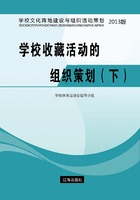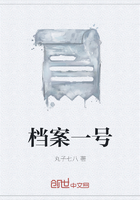Speech—the act of uttering① sounds to convey meaning—is a kind of human action. Like any other constantly repeated action, speaking has to be learned, but once it is learned, it becomes a generally unconscious② and apparently automatic process.
As far as we can determine, human beings do not need to be forced to speak; most babies seem to possess a sort of instinctive③ drive to produce speech like noises. How to speak and what to say are another matter altogether. These actions are learned from the particular society into which the baby is born;so that, like all conduct that is learned from a society—from the people around us—speech is a patterned④ activity.
The meandering⑤ babble⑥ and chatter of a young child are eventually channeled⑦ by imitation⑧ into a few orderly grooves⑨ that represent the pattern accepted as meaningful by the people around him. Similarly, a child’s indiscriminate⑩ putting things into his mouth becomes limited to putting food into his mouth in a certain way.
The sounds that a child can make are more varied and numerous than the sounds that any particular language utilizes.
However, a child born into a society with a pattern of language is encouraged to make a small selection of sounds and to make these few sounds over and over until it is natural for him to make these sounds and no others.
① utterv. 发出(声音等);说,讲;表达
② unconsciousadj. 无意识的,不知不觉的
③ instinctiveadj. (出于)本能的;(出于)天性的;(来自)直觉的
④ patternedadj. 有图案的,组成图案的
⑤ meanderingadj. 聊天的
⑥ babblen. 模糊不清的话;嘈杂声
⑦ channelv. 将……导向
⑧ imitationn. 模仿,模拟;仿造;伪造
⑨ grooven. 常规;习惯;老一套
⑩ indiscriminateadj. 杂乱无章的
发出声音表达意思的动作
说话——发出声音表达意思的动作——是一种人类的行为。像任何不断重复的行为一样,说话也必须通过学习。但是一旦学会,它便成为一种基本上是不知不觉,看起来好像自动进行的过程了。
就我们所能判断的情况而言,人类学说话无需强迫。大多数婴儿似乎有一种本能的要求来发出类似说话的声音。至于怎样说和说什么则完全是另外一回事了。这些行为是从婴孩诞生的那一特定社会中学到的。因此,像从社会,也就是从我们周围的人们那里学会的所有行为一样,言语也是一种模仿而来的活动。
一个年幼的孩子漫无目的地咿呀学语和喋喋不休地发出音来,通过模仿最终形成一些有条不紊的常规,这些常规体现了周围人们认为有意义而加以接受的模式。同样,一个小孩抓着东西不加分辨就往嘴里送的举动,也会变得局限于只把食物放入口中。
一个孩子所能发出的声音,比任何特定的语言所使用的声音更加变化多端和丰富多样。
然而,生在具有某种语言模式的社会中的儿童,都会被鼓励去发出少量挑选出来的声音,并且反复这样做,直到他很自然地只发出这些声音,而不发出别的声音为止。















